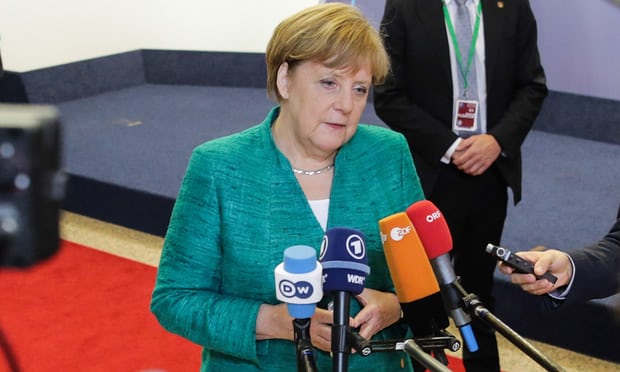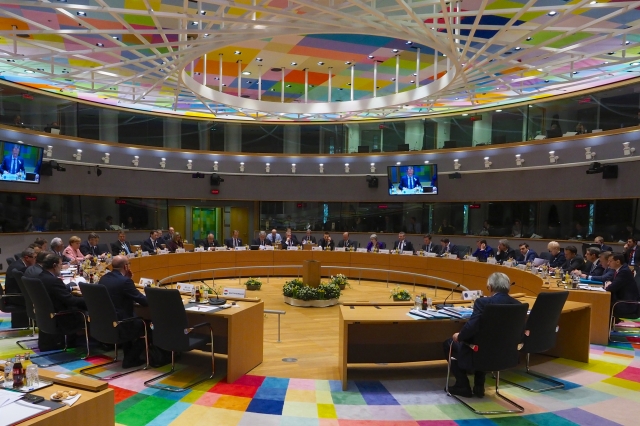EU leaders hail summit victory on migration but details scant
Hours earlier that outcome had been in doubt, when Italy threatened to veto the entire text unless other EU states did more to help with people arriving on Italian shores. Opposition from Poland, Hungary and other central European states to any hint of mandatory action meant talks dragged through the night.
The euro jumped 0.6% on news of the deal, while the French president, Emmanuel Macron, declared that European cooperation “has won the day”.
Italy’s prime minister, Giuseppe Conte, said: “We are satisfied. It was a long negotiation but from today Italy is no longer alone.”
But the bloc dodged an agreement on controversial refugee quotas, as a quartet of central European countries resisted language on EU-wide responsibility. The outcome is already being seen as a thin deal.
 |
| German chancellor Angela Merkel speaks to the press before leaving the first day of a European Union leaders’ summit focused on migration, Brexit and eurozone reforms. Photograph: Aris Oikonomou/Getty Images |
On leaving the summit, the German chancellor conceded that “we still have a lot of work to do to bridge the different views”, but said it was “a good signal” that the EU had agreed a common text. Merkel had warned on Thursday that the future of the European Union hinged on whether it could find answers to the “vital questions” posed by migration.
Leaders agreed EU countries should help migrants rescued in the Mediterranean to alleviate the burden on Italy and Greece, but the details remained unclear.
The issue has risen to the fore, since Italy closed its ports to migrant rescue ships, leaving several boats adrift at sea, until other countries stepped in to help.
In an effort to avoid a chaotic situation, leaders agreed there should be “a shared effort”, but “only on a voluntary basis”. Countries will take in rescued migrants and establish processing centres to assess asylum claims on their soil.
Finding a more consensual note, EU leaders called for migrant processing centres in north African countries. They agreed to “swiftly explore the concept of regional platforms in close cooperation” with non-EU countries and the UN refugee agency and the International Organisation for Migration, also a UN-backed agency.
 |
In essence, this means migrant processing centres in countries such as Algeria, Egypt, Libya, Morocco, Niger and Tunisia. EU funds would be available to persuade countries to sign on, but so far no countries have agreed, while a couple have ruled themselves out..

